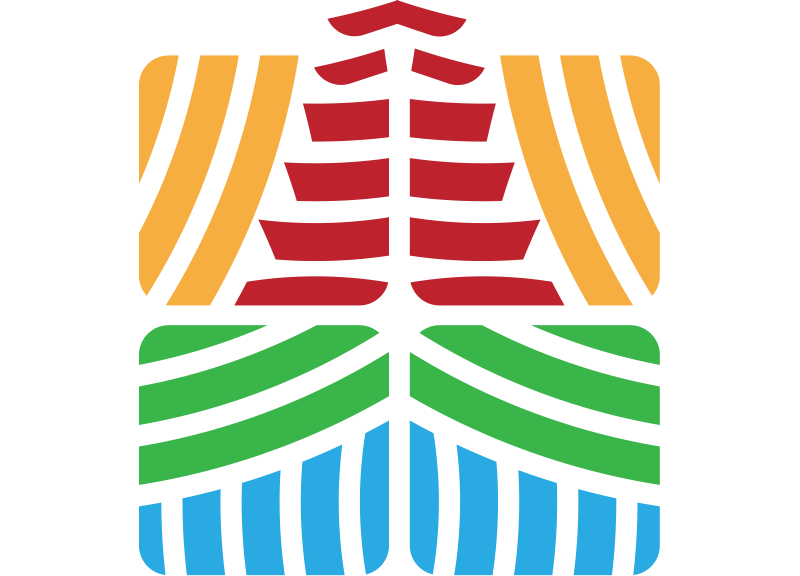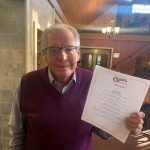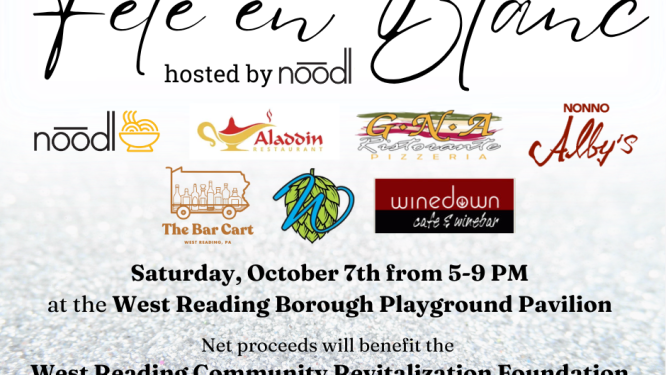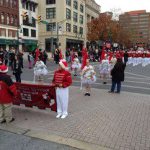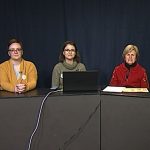My name is nadine*, my pronouns are they and their. I am one of the more than 87,000 people who call the City of Reading home. I am also the lead writer behind this story telling project. What, you ask, is this story telling project? It is an invitation for you – the people of Reading – to tell the story of Reading by sharing a story about who you are and what it means to you to be a part of this community. Of course, if I am inviting you to share a story about who you are, it seems only right that I share a story of my own. So, let’s begin again.
My name is nadine*, my pronouns are they and their. This simple sentence wasn’t so simple for me to say at the start. We had been talking about putting pronouns on our nametags for several months. I understood the why, I embraced the action, and then . . it got personal. A deeply held and hidden truth was breaking free in me and I was terrified. I had long learned to accept the pronouns ‘she and her’ even though they never matched my experience of me in the world. Now, for the first time in my life I was being asked to name my pronouns. For decades I had swallowed my truth, now I was being asked to speak it. An adrenaline-charged mix of excitement, fear, anxiety, denial, confusion and resistance rushed through my veins. Freeze, flee or stay present and speak truth? My thoughts raced. Yes, I agreed to pronouns on nametags, but did that mean on everyone’s nametag? My name on my nametag was good enough for me. I didn’t really care what pronouns people used for me. Or did I?
The Reading where I was born and mostly raised, the Reading that I couldn’t wait to leave when I graduated high school, was a world firmly framed and limited by binary boundaries (he, or she). In that world, “my pronouns are they are their” was not an option. Yet, Reading was my home. And a part of me couldn’t help but wonder whether it would still feel like home here once I spoke, “my pronouns are they and their.” That was a few years ago. Until recently, whether said aloud or displayed on nametags, buttons and in zoom rooms, folks hardly seemed to notice. Now, and almost daily, people are asking permission to ask me about my pronouns, or apologizing for using the wrong pronouns. Each time the conversation has strengthened connection and left me feeling more fully at home here. Turns out I do care about my pronouns and it matters that others care too.
What is your story about finding yourself at home in Reading? Who or what contributes to your sense of belonging? How are you a part of making Reading what it is? What is the future Reading you are imagining into being? Contact nadine to share your story: [email protected] or 484-333-4015.
*It is a personal preference to not capitalize my name. The pronouns “they and their” are one example of alternative terms used in inclusive language for persons who do not identify with binary definitions of gender.
“And Then. . .Many Threads, One Fabric” is a novel community narrative project. One telling at a time we will be (re)weaving the living story of Reading to illustrate the rich diversity of who we are, as well as how we imagine the future we are creating together.
This project is funded by a FARO grant provided by a partnership between the Wyomissing Foundation and Barrio Alegría. Produced in conjunction with BCTV.
Logo designed by José Joel Delgado-Rivera, Public Relations and Marketing Consultant. A mix of threads forming the Pagoda, the Sun, the Trees, and the Schuylkill River.
